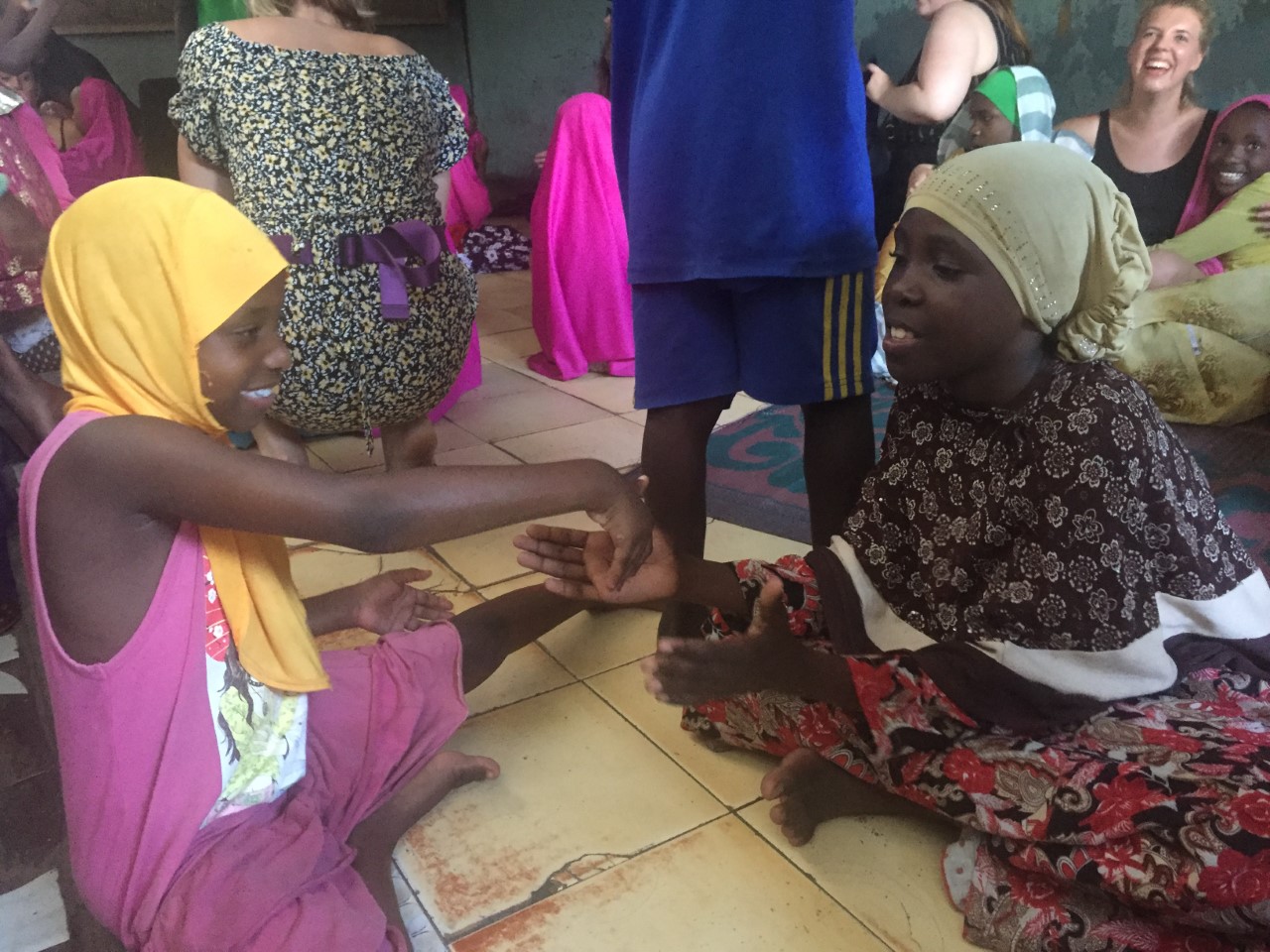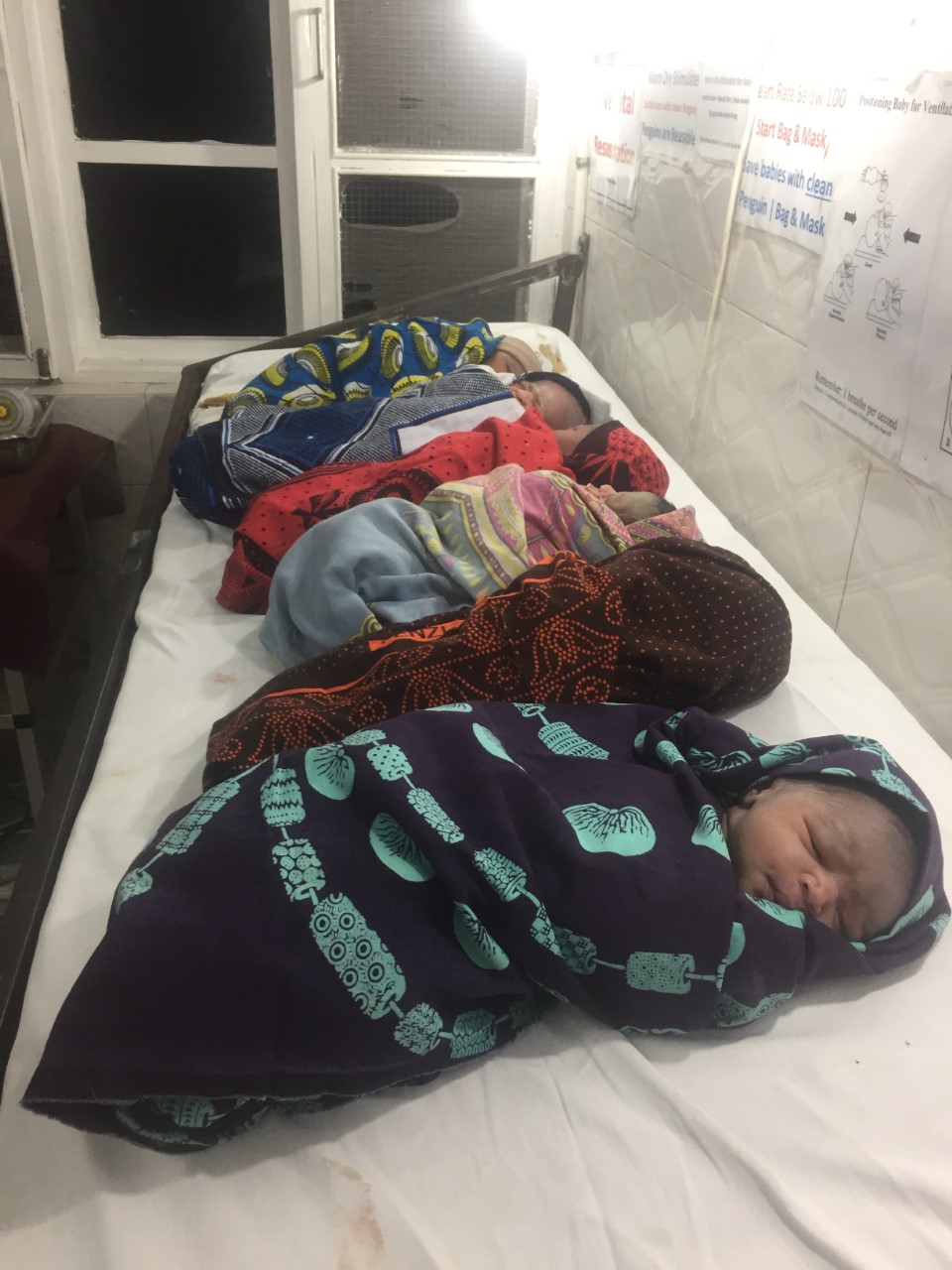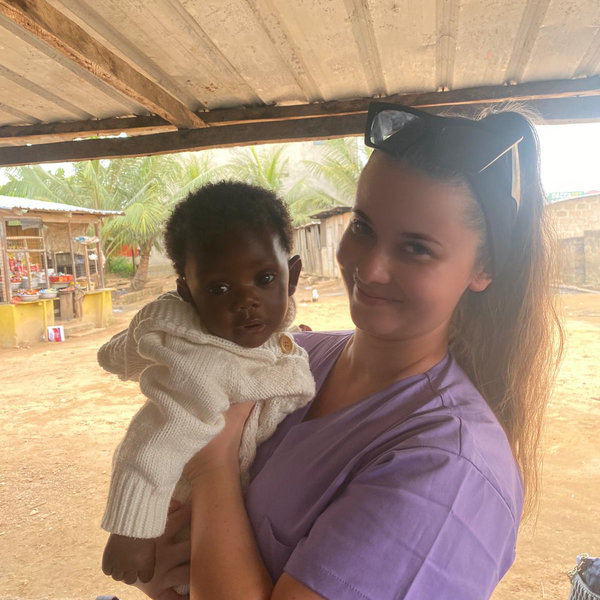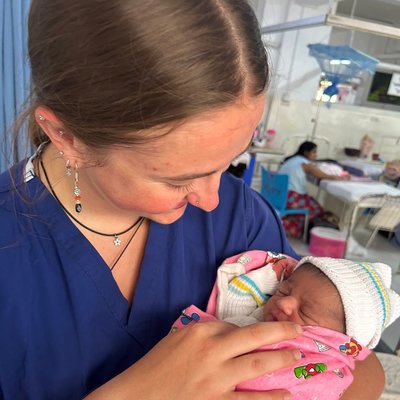University of the West of England (UWE) 2018

Between my first and second years, my tutor at UWE introduced to my cohort the idea of going on an overseas elective placement.
A few months later, I went to an elective event at UWE. The speaker mentioned an overseas elective organisation called Work the World during their presentation.
I had in-depth conversations with the organisation and they helped me figure out — in detail — what an overseas nursing placement in Tanzania could look like.
Before I knew it, I was on a plane to Tanzania.
I spent my first two weeks in the acute paediatric care unit of a national hospital in the city of Dar es Salaam.
Local staff were welcoming on the ward, and involved me from day one.
I hadn’t experienced a paediatric ward before, so I had nothing to compare my experience to. But, one big difference was that nurses didn’t seem as compassionate towards patients as I was used to in the UK.
 Another major difference was that families did for patients things that would normally fall to a nurse in the UK. If a baby’s nappy needed to be changed, the family saw to it and they were expected to stay with the baby at all times.
Another major difference was that families did for patients things that would normally fall to a nurse in the UK. If a baby’s nappy needed to be changed, the family saw to it and they were expected to stay with the baby at all times.
Also different from the UK, doctors told nurses what medication they wanted children to have, but there were no drug charts to speak of. Nurses just wrote what doctors had said on pieces of paper, and they used these as their daily care plans.
There were times when patients required lifesaving treatment. But because healthcare isn’t free in Tanzania, when patients couldn’t afford the treatment they didn’t get treatment.
I watched doctors try to save lives where they could, discussing cheaper alternatives for hours. They were often unsuccessful.
Patients often came to hospital when it was too late to do anything for them, which didn’t help matters.
I spent my second two weeks on the antenatal and the labour wards in another hospital.
 On the way there, I could tell I was headed into an economically disadvantaged part of Tanzania. This was confirmed when I got to the hospital.
On the way there, I could tell I was headed into an economically disadvantaged part of Tanzania. This was confirmed when I got to the hospital.
The wards here were even more eye-opening.
The first thing I saw when I walked onto the antenatal ward was four women sharing two pushed-together hospital beds. In fact, half of the ward was laid out like this.
There were other women lined up on a bench, waiting to have their observations done. Local nurses’ main concern seemed to be whether or not the women had preeclampsia.
I later moved to the labour ward. While I was there, I assisted in collecting babies from C-sections.
I put on a sterile gown and gloves, then took babies from the doctors and prepared them to go back to the labour ward. And — until their mothers came out of recovery — there they waited.
This hospital was very under resourced. So much so that patients had to bring in their own equipment — catheters, sterile gloves, cord clamps….
I brought with me more than I needed, so ended up donating spare gloves, scrubs and sanitary towels. The staff were so appreciative of these things that in the UK we take for granted back home.
My placement in Tanzania was an amazing experience. It had highs and lows, and I am happy I experienced them all.

This opportunity was once in a lifetime — I am glad I listened to my tutor and went!
The experience made me become more confident socially and in my clinical practice.
This opportunity was a once in a lifetime — I am glad I listened to my tutor and went!
If I could do it again I would.








